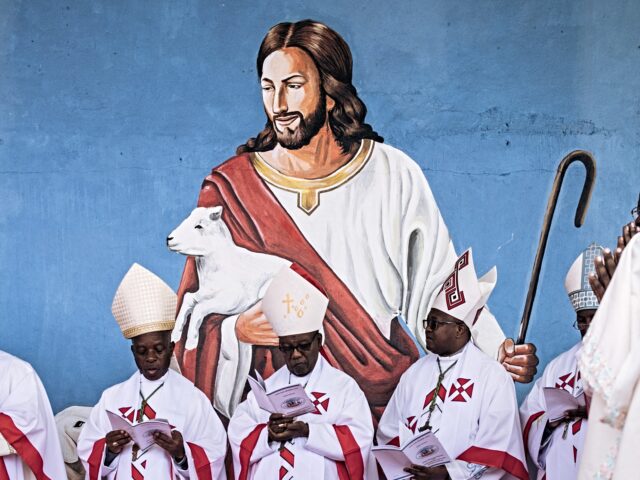ROME — Gay-rights activist Father Timothy Radcliffe, who will be made a cardinal by Pope Francis in December, has blamed African opposition to homosexuality on “intense pressure” from outside influences like American evangelicalism.
The Catholic Church must be open to everyone, whoever they are, Father Radcliffe writes this week in the Vatican newspaper L’Osservatore Romano, “the divorced and remarried, gays, transgender people.”
“But in some parts of the world, welcoming gays is seen as scandalous,” he states. “Many Catholic bishops in Africa see it as an attempt to impose a decadent Western ideology on the rest of the world.”
The priest notes with chagrin that Cardinal Fridolin Ambongo of Kinshasa, president of the organization that represents all the Catholic bishops of Africa, traveled to Rome in December 2023 to explain to Pope Francis why the African bishops could not embrace a Vatican text titled Fiducia Supplicans that opened the possibility of granting priestly blessings to gay couples.
“Never before had all the bishops of a continent repudiated a Vatican document,” Radcliffe writes. “Every attempt was made to calm the crisis.”
“Is the refusal to bless gays in Africa an example of inculturation or a refusal to be a nonconformist?” Radcliffe asks. “Inculturation for one person is another person’s rejection of the nonconformist Gospel.”
Curiously, in his attempt to explain why the African bishops rejected en masse a proposal to bless gay couples, Father Radcliffe does not look to biblical teaching on homosexuality nor to the Church’s unchanging doctrine condemning gay sex.
Instead, he suggests that “African bishops are under intense pressure from Evangelicals, with American money; from Russian Orthodox, with Russian money; and from Muslims, with money from the rich Gulf countries.”
In other words, if the African bishops are rejecting the idea of blessing same-sex couples, it cannot be out of fidelity to Christ and his Gospel; it must represent a caving to external pressures.
If Father Radcliffe had bothered to read Cardinal Ambongo’s own explanation for the African bishops’ action, things might have been somewhat clearer.
“In Africa there is no place to bless homosexual couples. Not at all,” the cardinal stated.
Blessings for individual persons are given “in the hope that the grace of the blessing can help them convert,” he said. “And if we bless a homosexual, it is also to say that ‘your sexual orientation is not in accordance with the will of God and we hope that the blessing can help you change because homosexuality is condemned in the Bible and by the magisterium of the Church.’”
“We cannot be promoters of sexual deviation. Let them do it in their homes, but not in ours,” he said.
Unbiased readers may have trouble understanding how such a statement — which faithfully reflects Catholic moral teaching — could represent capitulation to Evangelicals, Orthodox, and Muslims.
Similarly, Bishop Martin Mtumbuka of the Karonga Diocese in Malawi told the faithful of his diocese in a Christmas Eve address last year to “forget and ignore this controversial and apparently blasphemous declaration in its entirety.”
“Was this letter written to please homosexuals and their promoters?” Bishop Mtumbuka asked.
The document Fiducia Supplicans “looks to us like a heresy; it reads like a heresy; and its effects a heresy,” he said.
“It’s sad; the Catholic Church is old, as old as Christianity itself; this has never happened before,” he said. “But we have no choice; we cannot allow such an offensive and apparently blasphemous declaration to be implemented in our Dioceses.”
For his part, Pope Francis asserted that the people who are “vehemently protesting” the decision to allow the blessings to gay couples “belong to small ideological groups.”
He then added, however, that the case of the African continent is “special,” because for them, “homosexuality is something ‘ugly’ from a cultural point of view; they do not tolerate it.”
The bishops of Africa “are now being condescendingly portrayed as culturally conditioned,” responded Dr. Nina Heereman, professor of theology, “while we fail to ask ourselves to what extent we are the ones succumbing to the pressure of the culture around us.”

COMMENTS
Please let us know if you're having issues with commenting.